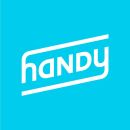Finding the right cofounder bears a stark similarity to finding the right significant other. Ideally, you’ll meet perchance, bond over common interests and endure by complementing each other's strengths. A fitting cofounder should be the analytical wizard that hones your creative visions, enabling you to trust each other with taking care of your mutual baby — your startup.
However, finding a fitting cofounder doesn’t always happen serendipitously or smoothly, and venturing into the tech world solo can take its toll on the thinly-strapped entrepreneur. A few local startups shared their founding stories with us, and what to look for in a cofounder before you decide to tie the knot.

The idea for Casper was born when four of the company’s five cofounders were working on different projects out of the same coworking space. Surrounded by workers drinking green juice and sporting Fitbits, they noticed that these seemingly-healthy people were also pulling all-nighters and falling asleep at their desks. As the founders realized that these people were taking their health seriously, but sacrificing sleep, they set out to improve how people got their necessary rest. Their founding mission became to engineer one perfect mattress.
The four cofounders then brought on their fifth founder, Jeff Chapin, who brought 10 years of experience designing at IDEO. As a team, the group tested thousands of material combinations over months of rigorous work and finally arrived at the final Casper prototype.
Gaining traction immediately, Casper was profitable from its launch day, generating $1 million in profit in its first 28 days and reaching more than $30 million in its first year.
When it comes to finding the right cofounder(s), Casper’s leaders recommend looking for partners with a sense of humor.
“When you have to make hard decisions, have tough days or ironically sleepless nights (in Casper's case), it's good to know that the person across the table will laugh it out with you,” said Neil Parikh, cofounder and COO at Casper.

Prior to creating WhoSay, Steve Ellis founded Pump Audio, a music licensing marketplace that connected independent musicians with production and agency buyers in television and advertising. After selling Pump Audio to Getty Images in 2007, Ellis received a phone call from Creative Artists Agency (CAA).
CAA explained to Ellis that they had started to receive many questions from their celebrity clients about how to handle social media, and they were reaching out to him because of his successful background helping artists participate directly in the value they created with their content through technology.
Shortly after this conversation, Ellis flew to Los Angeles to meet with CAA and together they formed the idea for WhoSay, an independent media company that helps celebrities earn revenue from the engagement they drive across social media.
In 2010, Ellis moved to Los Angeles for one year to work with a small team within CAA. It was the perfect partnership—he brought his knowledge and experience on building a platform, while CAA provided the expertise and resources in the entertainment industry.
As WhoSay evolved, the company has capitalized on market changes and become the leading celebrity and influencer content marketing entity. Today, WhoSay is headquartered in New York with an office in Los Angeles, and has connected over 2,000 celebrities to distribute authentic content.
For entrepreneurs looking for the right cofounder, Ellis recommends finding a partner with a complementary background to your own.
“With launching WhoSay, I had the knowledge and experience on the tech side and building a platform and CAA had the expertise and resources in entertainment and the world of celebrities, creating the perfect combination,” said Steve Ellis, CEO and cofounder of WhoSay. “My main recommendation is to marry your expertise and skills with individuals or a team that has experience on the other side of the equation.”

Oisin Hanrahan and Umang Dua came up with the idea for Handy when they were roommates at Harvard Business School. The pair was struggling to find someone they could trust to clean their messy student apartment and do light handyman tasks, and thus, Handy was born.
After experiencing the clunky process of searching, scheduling and negotiating prices to find a reliable professional, Oisin and Umang began to build out their vision for a platform that allowed customers to book trusted cleaning and handyman professionals at a click of a button.
Shortly after understanding the needs of customers, they began to tap into the draw of the platform for professionals who wanted to claim jobs at the click of a button as well.
Oisin and Umang relocated Handy’s headquarters to New York, as they wanted the business to be rooted in the U.S.’s largest city and marketplace. Since then, Handy has continued to expand across the United States, Canada and the UK, and is now active in 37 locations. In November 2015, Handy raised $50 million in a Series C funding round from Fidelity Investments, solidifying its standing as market leader in on-demand home services.
They are focused every day on delivering the best experience to customers and the best experience to professionals on the platform while they aim to one day deliver every type of service needed in the home.
When looking for a business partner, Oisin suggests finding someone who shares your passion and belief in your idea.
“In our four years together, Umang and I have faced several challenges but we have overcome each and every one of them, because we share the same vision for Handy,” said Oisin Harrahan, cofounder and CEO of Handy.

While Alex Blumberg was starting to build Gimlet Media, and recording the entire process along the way, he decided he couldn’t build the company by himself. The process was producing too much emotional turmoil, as there was simply too much work that had to be done. After deciding he needed to find a cofounder, he started testing the waters.
Blumberg experimented with a business partner matchmaking site, but to no avail. When he came close to giving up on the search, he met Matt Lieber. Lieber was a former radio producer turned management consultant, and possessed all of the qualities that Blumberg was looking for in a cofounder. Matt drummed up a business plan for Gimlet, the two settled on an equity split and the rest is history.
You can listen to the entire story on how Blumberg and Lieber cofounded Gimlet here.
Have a tip? Let us know or follow us on Twitter and LinkedIn.







